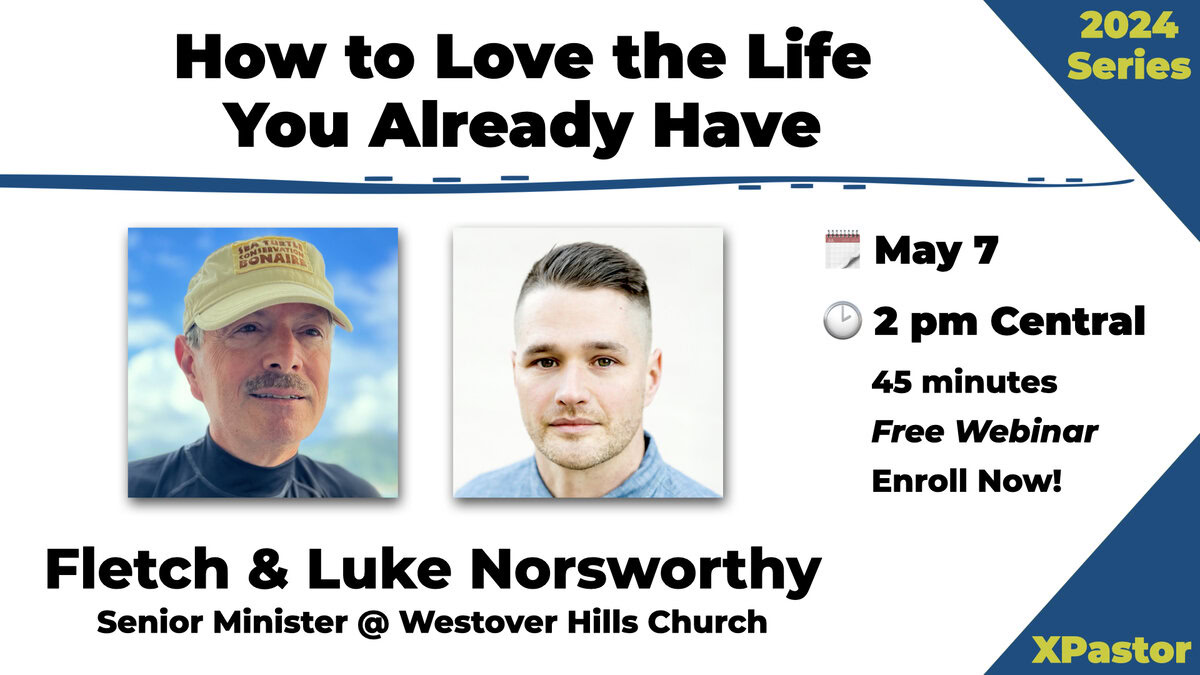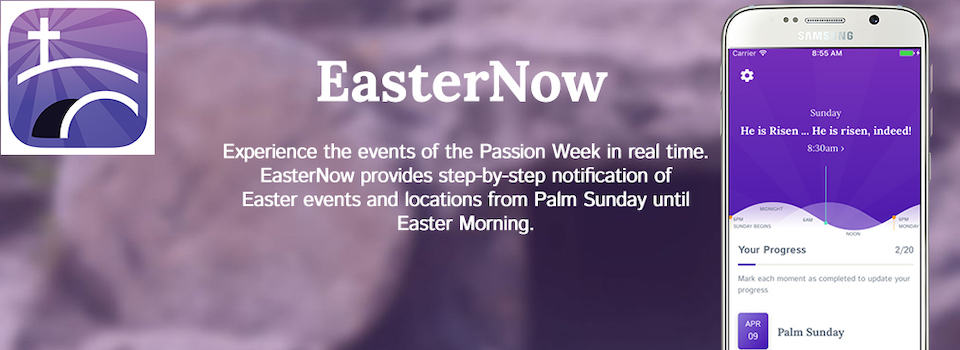Some of you Executive Pastors have never done a funeral and might need some ideas. Here is an article with a touching story, a great example of the type of story to share during a funeral message.
I’ll Miss You, Aunt Lyn
Today was my Aunt Lyn’s funeral. She passed away a few weeks ago after a long battle in the hospital.
Lyn had special needs, and growing up she was more like a cousin to me than an aunt. Present at every birthday party I remember, always ready with good-natured ribbing, a laugh that made you laugh right along with her.
These past ten years or so, my mother faithfully took care of Lyn, overseeing all of her medical care, decorating her room at the Wee Care facility, filling in as her surrogate mom after my grandmother’s passing, and serving as her health care advocate.
Lyn’s story is as much about my mom and the love siblings have for one another, as well as the way God can help you do extraordinary things in the midst of really difficult circumstances.
And so it is on this day I want to say a big thank you. Not only for the privilege of knowing such a wonderful person like my aunt, but for the example my mother set for what it truly looks like to be family.
I wrote about my aunt a few years ago in Chapter 8 of my book Second Guessing God. I thought I’d share it with you today…
Our Family Mystery
I want to introduce you to a mystery my family and I have been living with as long as I can remember—my Aunt Lyn. The last time I saw her was last year at Thanksgiving when our family drove to my parent’s home in Ohio. It usually takes eight hours (and five potty breaks) for our family to get there from Philadelphia. Thanksgiving with the Jones clan is a pretty simple affair. The women cook. The men clean up. Things are much easier that way. We tried it the other way around once and it wasn’t pretty.
Lyn is fifty years old and suffers from schizophrenia. Midway through the afternoon on Thanksgiving Day, my mom left and picked her up from the mental facility where she lives. As my aunt meandered up the driveway, Mom peeked her head inside the front door and asked if I could help Lyn up the steps. As I stood up, I looked at my wife with an expression that said, “This is going to be one more awkward Thanksgiving with my aunt, just like the rest.” I was wrong.
Once Aunt Lyn was settled in the living room, I tried to make small talk. “What do you get to do where you live?” I asked without thinking, as if a typical afternoon agenda looked a lot like a day at summer camp.
“Nothing much. I like going to the cafeteria early. I get extra ice cream.” She giggled. Her laugh can fill an entire room in an almost embarrassing way. While we sat there, she had moments of lucidity and I lost sight of her disease. Then, without warning, she cackled again and made a loud irrational comment, and we were both brought back to reality.
My grandparents have told me that when Lyn was two years old, she tumbled down the basement steps and hit her head. Soon after that, she started having seizures; it wasn’t until after high school that Lyn experienced her first psychotic episode and was diagnosed with schizophrenia.
After a few hours that Thanksgiving Day, Aunt Lyn yelled for my mother and then shifted to a child’s voice and whispered, “I’d like to go home now.” I offered to drive. Her facility was twenty minutes across town. Lyn rode shotgun while Grandma and my mom rode in the back.
On the freeway, Lyn laughed and said, “You’re a quarterback, aren’t you? I can’t believe it. I’m sitting next to a cute quarterback!”
“Yep, you got it,” I said, “especially the cute part.” I hadn’t taken a snap from center since I played football in high school, twenty years earlier.
“And you’re a preacher too,” she said with a serious look on her face.
It was cold in the van. We sat in silence for a few minutes as we waited for the heater to kick in.
“Sing me that song you used to sing to me when we were kids, Darlene,” Lyn shouted to my mom.
“What song?”
“You know! That song! I forget how it goes. Sing that one.”
“Who sings it?” Grandma asked.
“You know, sing that song you used to sing to me when we were kids,” Lyn pressed.
Frustrated, my mom replied, “Lyn, I have no idea what song you’re talking about.” Then, as if reaching back into some childhood memory, maybe from a bedtime routine, she said, “Lyn, do you mean that Doris Day song?”
“Yeah! Sing me that one. That’s it.”
My mom started singing, and Lyn immediately joined in, waving her arms back and forth like an orchestra conductor. After a few lines, my grandmother chimed in too, and I was struck by the irony of the words:
When I was just a little girl,
I asked my mother “What will I be?
Will I be pretty? Will I be rich?”
Here’s what she said to me.
“Que sera, sera.
Whatever will be, will be.
The future’s not ours to see,
Que sera, sera.
What will be, will be.”
My throat started to constrict, and I fought off tears. I couldn’t help but see my aunt in that song. In some strange way, I think she saw herself in it as well.
As I pulled into the parking lot of her facility, I noticed how much it looked like a regular nursing home. For some reason I had pictured a building at least five stories high with a thick steel elevator and guards posted outside. Aunt Lyn grabbed my arm, and we walked like we were newlyweds. Lyn has a phobia of falling down, so with every bump in the parking lot she slowed down, shuffled her feet, and moaned. Walking arm-in-arm, with my grandmother behind us, we entered the double doors and were greeted by three nurses sitting at the desk in the hallway.
“This is my nephew, Brian,” Lyn said and giggled as she rubbed her head on my shoulder. “I’m in room number twelve, to the left,” she whispered in a small girl’s voice.
Her room looked like a hospital room. There was a bed with handrails. A sheet divided Lyn’s section of the room from that of her catatonic roommate. On the wall my mom had hung a corkboard full of pictures. I couldn’t help but notice that I hadn’t sent her any. I stared at those pictures and immediately choked up again. “This is her life,” I mumbled to myself.
Grandma patted Lyn’s bed and tried to act like everything was okay, the way a young mother tries to comfort her three-year-old when dropping her off at preschool. “You walk, ya hear? You have to walk. And eat when they take you to the cafeteria.” She put her hands on Lyn’s shoulders and looked her in the eyes. “You eat what they tell you to eat.”
Who dreams their life will turn out this way? I hugged Lyn, promised I would see her soon, put my arm around my grandmother, and we left. We walked fast, faster with every step.
“What are you thinking?” Grandma asked, as if reading my mind.
“I’m thinking you must be a strong person, Grandma.”
Back in the van, I tried not to cry. I didn’t want to make my mom or my grandmother feel bad, as if I judged them in any way for putting my aunt in that facility. You could hear the sound of the tires hitting the bumps on the freeway the whole way home. I thought back to the song they sang earlier and was angered by the tragedy of Lyn’s life.
My aunt missed it all. She never went on a date, attended a prom, or had a boy call her on the phone. She never had her heart race as a man touched her hand and looked into her eyes. She never sat on her knees in her garden as her children played in the backyard and the sun rained down its warmth. I was taken back by the ugliness and pain of it all. Then I cried, silently at first, and then uncontrollably.
It’s not fair, I said to myself. It’s just not fair. I wiped tears away from my cheeks. My mom and grandmother politely ignored my quiet sobbing. They sat and stared straight ahead, taking in the weight of it all. Where is God in all this? I kept asking myself. Did He take one look at my aunt and throw up His hands and say, “Whatever will be, will be?”
The Bible tells us in Exodus 33:20 that no one can see God’s face and live. Before that night I had always assumed that was because God is so holy and powerful that His face is too commanding to behold.
But after that Thanksgiving with my Aunt Lyn, I began to see that passage differently.
Theologians tell us that God is such a compassionate God that His heart breaks for people like my aunt. If what they say is true, then maybe what that passage means is that no one can look at God’s tears and live.











